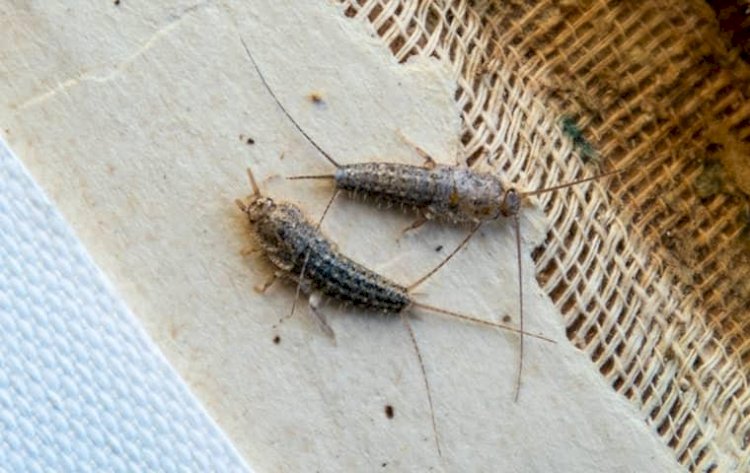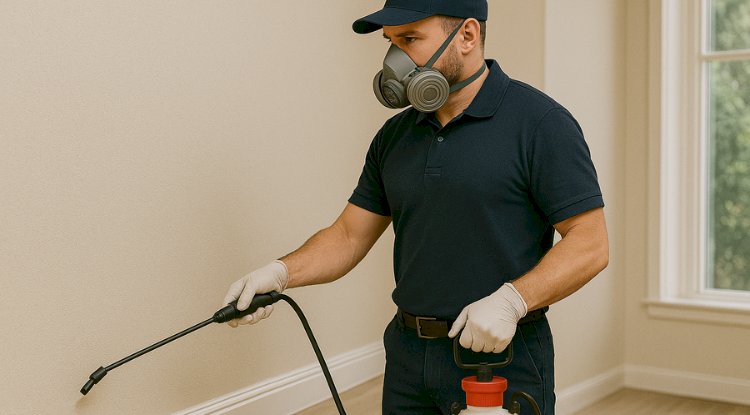Chemical-Free Garden Pest Control Prevention and Action
Beneficial Animals for Pest Control Services

Organic Garden Pest Control aims for a balanced ecosystem that naturally keeps pests away from your garden, ensuring unhindered plant growth and long-term soil health ...
Pest types
Prevention: Level 1 - Healthy Plants (Noxious Insects and Diseases)
Warning: Level 2 - Reduction of harmful insects and diseases due to changes in the landing map
Prevention: Level 3 - Attracting Predators to Control Pest Insects
Control: Level 1 - Gardener's intervention (to control harmful insects, diseases, mammals)
Control: Level 2 - Natural Pesticides, Biological Controls and Other Controls
Pest types
Pests come in all shapes and sizes, from tiny insects to large mammals. You need to know the enemy by sight. Here they are …
Diseases - Microscopic living organisms called pathogens (bacteria, fungi, pathogenic nematodes and viruses) cause diseases that shouldn't be a big problem after reading the article starting a garden that naturally makes your garden healthy. But if you are still working on your soil and cannot create it where it should be, disease can be a problem.
Slugs and snails - enjoy devouring everything in your garden. They usually go out at night, and since they move at a snail's pace, you can catch them if you go out into your garden at night with a flashlight. If you don't want to look like a thief, look for a couple of obvious signs: eaten holes in the leaves of your plants, along with mucus next to the wound.
Harmful Insects (not to be confused with beneficial insects, discussed below) - Insects in your garden can be harmful in their adult form, larva form, or both.
Mammals - Mammals are especially frustrating given the large amount of damage they can do in a short amount of time. Some are more cunning than others (burrowing, jumping, climbing, ejecting), so we'll figure out how to outwit the brightest of the vandals further down the page. Here are some of the more common garden opponents:
Prevention: Level 1 - Pest control (harmful insects and diseases)
Now that you have some idea of who we are fighting against, let's discuss the basics of pest control in the garden. Notice we said pest under control, but not pests. After all, pests do exist in nature, and most wild plants seem to get along just fine. Your goal in the garden is to tip the scales in your favor and keep your presence to a minimum.
To this end, first consider what the pests want
Mammals like us, deer, raccoons, bears and others, want our fresh vegetables. But harmful insects and diseases have a very different appetite, how you can use this to your advantage: they prefer weak, unhealthy plants.
To keep pests and diseases under control, keep your plants and soil as healthy as possible ...
Choosing the right place in the garden for the right lighting, wind, humidity and temperature
Encouraging the soil with compost and correct the pH of the soil in the garden at
Removing from the garden, plants are moist to avoid the spread of the disease
Watering plants in the morning to allow them to dry before sunset (thereby discouraging excess moisture and darkness, so beloved by pathogens)
Watering plants at the root, not over the entire surface
Maintaining a weed-free garden
Correct mulching (preferably compost)
Follow the recommendations for specific plants. For example, some plants are difficult to take root after transplanting, while others are more sensitive to soil and temperature fluctuations in the air. You also need to make sure that each type of plant is getting the water it needs. See the following pages for plant-specific guidelines:
Vegetable planting guide
Garden herbs: growing herbs from seeds
List of all fruit and berry plants
How to grow flowers
Also, recognize that attacking your garden is not the end of the world. Even if the pests have made their way to your seedlings and the conditions in your garden are ideal, you will have a bountiful harvest in the future.
Warning: Level 2 - Changing Planting Patterns As One Way To Reduce Insect Pests and Diseases
The concept around pest containment is simple: don't offer your crops to pests on a silver platter. Put yourself in their shoes. The garden, which is a thousand times larger than us, is a food tray containing food that is edible and inedible for us. How would you like to have food laid out on a platter?
Answer: The plants you eat should be together, in the same place, from year to year.
In horticulture, there is a variety of compatible crops (i.e. crops that prefer similar soil temperatures, soil pH, watering) and this should be exploited by alternating between locations. Thus, if the pest remains in the ground, they will be less likely to go around. And while they try to get over, they will be intercepted by your predatory allies (discussed in the next section).
For the same reasons, practice rotating vegetable and herb crops. You do not want the larvae and insects of last year to reappear or a persistent (constantly renewable) disease that has easy access to your garden from year to year.
Have you ever heard of a companion planting chart? The theory goes like this: some plants improve the environment for other plants. The actual advantage of this practice is undeniable: plant companions repel pests, improve soil quality, or provide "live mulch" that shades weeds. There are likely to be at least a few positives as a result of using this strategy.
Beneficial Animals for Pest Control Services
- Bats - These bad guys can kill over 1000 harmful insects in one night ... and that's just one bat! To keep them close,
set up a bat house. And don't be too afraid of rabies or bat bites, this is extremely rare ... just don't pick them up with your bare hands if they fall to the ground. - Birds - There are many ways to attract these insect-loving beauties: equip bushes and trees with birdhouses and feeders at various heights. The aristocratic method: a font for birds. You can even purchase or make your own heated birdbath to keep them close during the winter! Get experts help from Pest Control Fortitude Valley for pest control services.
Share
What's Your Reaction?
 Like
0
Like
0
 Dislike
0
Dislike
0
 Love
0
Love
0
 Funny
0
Funny
0
 Angry
0
Angry
0
 Sad
0
Sad
0
 Wow
0
Wow
0

















